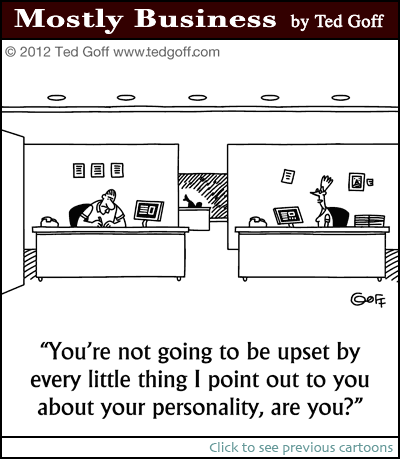"The WASM"According to the training manual of a restaurant chain that espoused the
WASM, the manager should first explain to the employee what a
WASM is and why it is important to be able to give one. Then the manager should say, "Now I'm going to demonstrate a
WASM," after which he would
WASM the employee. "Now it's your turn. Please demonstrate a
WASM for me" after which the employee should
WASM the manager.
Now that your curiosity is piqued, a "
WASM" is "a warm and sincere smile."
As long as we give employees the impression that thinking of any sort is not allowed, Organizational Intelligence (OI) is not a possibility. Albrecht arguments that management needs to think of and treat employees as the self-motivated adults they are. And that's what the 7 components of OI spell out.
Strategic vision is the sense of purpose and direction of the organization.
Performance pressure includes the basics to get there: performance goals, clear roles and responsibilities, and feedback.
Alignment and congruence are structural in nature and include structures that are appropriate to the mission and priorities, yet empowering and enabling employees to get their jobs done.
Shared fate is the "we're all in this together" feeling--that everyone is treated as and feels as a valued member of the organization.
Knowledge deployment is the flow of information into and around the organization. It includes cultural and structural elements to encourage and allow this to happen.
Appetite for change is the culture of continuous improvement. With these pieces in place, then the valued and valuable employees who have a clear understanding of the direction, who understand their role in achieving that goal and feel that they have the freedom to get their job done, who can get the information they need, and even change the organization if needed, can provide
the heart. Heart is commitment to the organization accompanied by the motivation to move the entire company ahead. It goes beyond just doing one's own job (or even doing it well).









 .
.




























